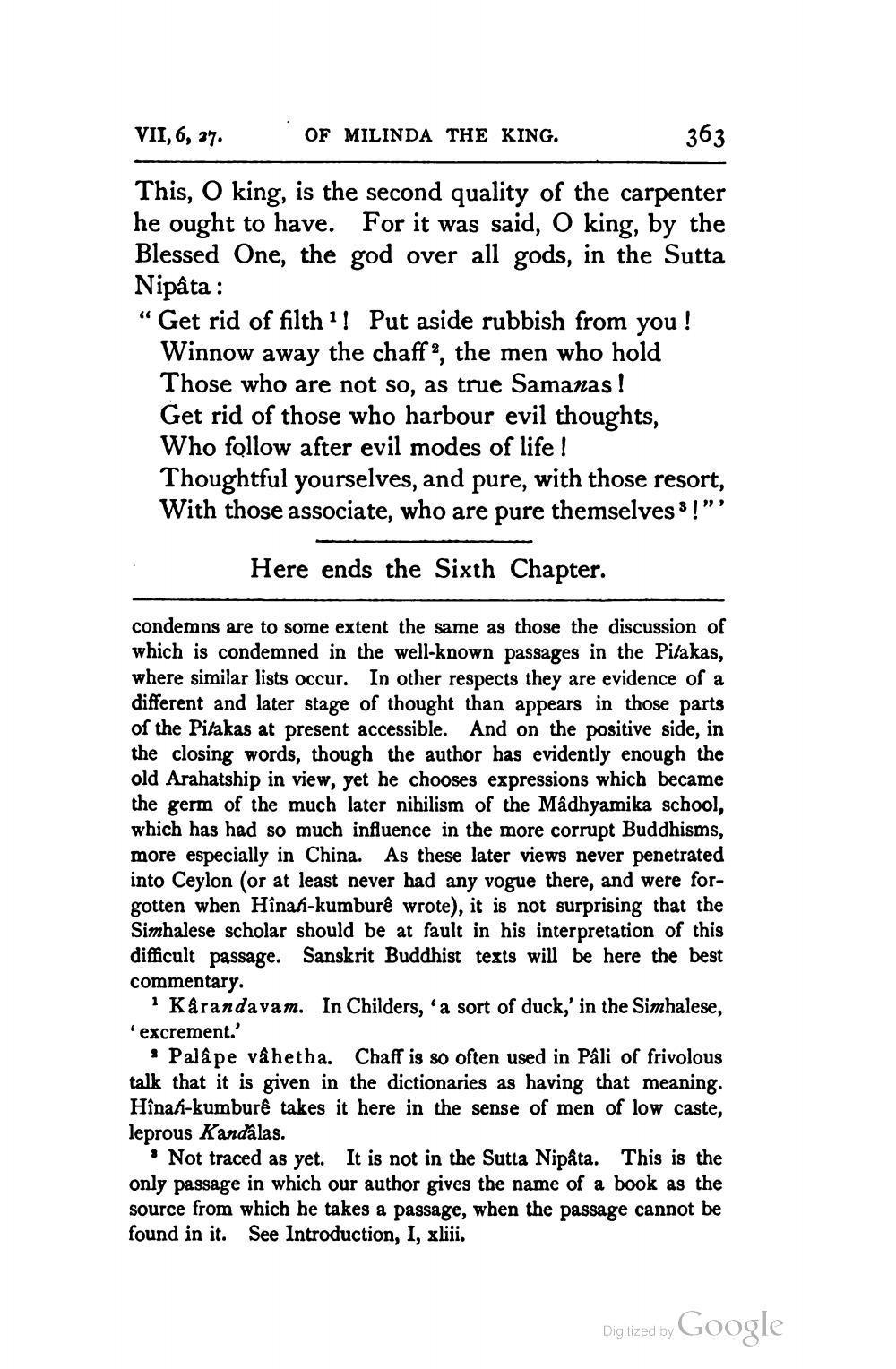________________
VII, 6, 27.
363
he ought to have. Blessed One, the Nipâta :
This, O king, is the second quality of the carpenter For it was said, O king, by the god over all gods, in the Sutta
"Get rid of filth1! Put aside rubbish from you! Winnow away the chaff 2, the men who hold Those who are not so, as true Samanas! Get rid of those who harbour evil thoughts, Who follow after evil modes of life! Thoughtful yourselves, and pure, with those resort, With those associate, who are pure themselves!"'
Here ends the Sixth Chapter.
OF MILINDA THE KING.
condemns are to some extent the same as those the discussion of which is condemned in the well-known passages in the Pitakas, where similar lists occur. In other respects they are evidence of a different and later stage of thought than appears in those parts of the Pitakas at present accessible. And on the positive side, in the closing words, though the author has evidently enough the old Arahatship in view, yet he chooses expressions which became the germ of the much later nihilism of the Mâdhyamika school, which has had so much influence in the more corrupt Buddhisms, more especially in China. As these later views never penetrated into Ceylon (or at least never had any vogue there, and were forgotten when Hînaf-kumburê wrote), it is not surprising that the Simhalese scholar should be at fault in his interpretation of this difficult passage. Sanskrit Buddhist texts will be here the best commentary.
1 Kârandavam. In Childers, 'a sort of duck,' in the Simhalese, 'excrement.'
Palâpe vâhetha. Chaff is so often used in Pâli of frivolous talk that it is given in the dictionaries as having that meaning. Hînan-kumburê takes it here in the sense of men of low caste, leprous Kandalas.
* Not traced as yet. It is not in the Sutta Nipâta. This is the only passage in which our author gives the name of a book as the source from which he takes a passage, when the passage cannot be found in it. See Introduction, I, xliii.
Digitized by
Google




